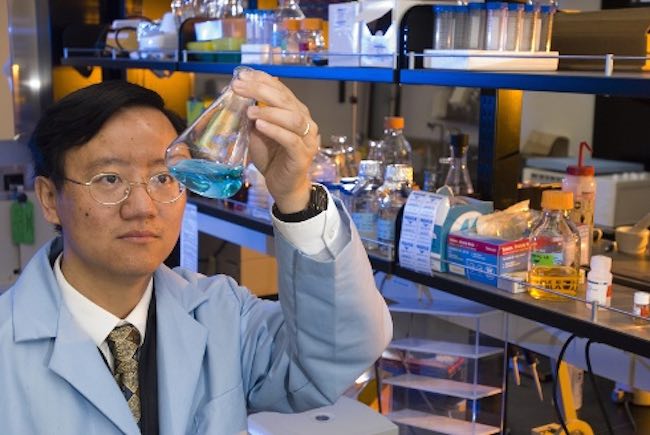Smoke and exhaust fumes pouring from the tailpipes of cars and coal-fired power plants could be a thing of the past if scientists’ dreams for hydrogen cars are realized. Researchers at Virginia Tech Monday announced a breakthrough that could bring hydrogen fueled cars one step closer to reality.
The scientists found a way to use waste materials from corn harvests — stalks, cobs, and husks — to produce hydrogen while significantly lowering costs.
Hydrogen-fueled cars, and their zero emissions are a big step up from even electric cars, because they don’t rely on power plants — often burning coal or gas — for recharging.
Rollin, a former doctoral student at Virginia Tech, was lead author on the team’s paper published in the Proceedings of the National Academy of Sciences.
Cost has always been a major hurdle in producing hydrogen for fuel. The new process could cut costs by as much as two-thirds, while shortening the time it takes to make hydrogen from biomass — or plant sugars. The new process is at least 10 times faster than current methods.
The current, expensive method requires burning natural gas to create a chemical reaction in highly processed plant sugars. The facilities needed to produce hydrogen are massive, meaning they require high start-up and construction costs. Processing the plant sugars before they can be turned into hydrogen adds another layer of expenses. And on top of all that, there’s the cost of transporting the plant materials to the production facilities, then to fuel stations.
The Virginia Tech team found a new process that speeds the reaction time to create hydrogen. The method uses cheap crop-waste instead of expensive processed sugar. This means, the production facilities can be smaller and use less time and energy to make hydrogen. And, because the facilities are smaller, you can build more of them closer to the crops — and closer to customers — cutting the transportation costs.
“This means we have demonstrated the most important step toward a hydrogen economy – producing distributed and affordable green hydrogen from local biomass resources,” Percival Zhang, a professor at Virginia Tech’s Department of Biological Systems Engineering said.
Rollin and Zhang have co-founded Cell-free Bioinnovations to bring their ideas to market. They’ve already received funding toward their next step — scaling up production to a demonstration size.
Scientists familiar with hydrogen fuel research say it’s still difficult to predict actual costs and savings — or even when the process could be marketable. But they are watching closely, and say the Virginia Tech breakthrough is giving their field a whole new way of looking at how to create a hydrogen-fueled economy.
Photo Credit: Virginia Tech (Zhang, pictured)




















